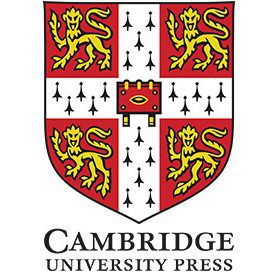An ideal program for those who want to explore science at a new scale.
Introductory Program in Nanotechnology
Get yourself signed up today to the basic perception & exploration of this emerging science. It tops with applications of technology in various sectors to aware the implementations of Nanotechnology at various levels.
Duration
1 Month
Eligibility
Diploma/ under-graduate /post-
graduate/ Experienced professionals/ academicians/ researchers
Fee
INR 6249/- Free
$ 300 Free
Here’s all about this course
The innovative Introductory Program in Nanotechnology aims to give participants a broad view of Nanotechnology and the prospects of Nanotechnology in near future.
The program covers various information needs of Nanotechnology, and abreast the participants from the historical to present and future perspectives of Nanotechnology.
What all you'll learn from this program
The program can benefit participants by giving them a basic knowledge & exposure to the new technology. One can apply this exposure to expand their application areas in their respective fields.
be a part of next industrial revolution
Impactful Areas of Nanotechnology
Some of the application areas of Nanotechnology are:
Nanofertilizers, nanopesticides, soiled toxifiers.
Drug-delivery, surgery, pharmacy, battling stubborn viruses .
Nanorobots that can clean up oil spills, purify air and perform surgeries
Molecule size transistors leading to billions of circuits/ sq. inch. Unimaginably high computing power.
Fuel additives, scratch-proof nanopaints, self-cleaning nano-glass
Nanocomputers 1 million times faster than current computers
Ultra-efficient solar cells, enhanced windmill technology, button cells that can have a life of up to 80 years
Ultra-strong light-weight materials for use in machines, aero planes, rockets. Electricity- conducting polymers.
Ultra-efficient fibre-optic technologies, mobile phones
Ultra strong cement, air purifying paint, self-cleaning paint
Nano-silver enriched water purifiers, seawater purification for drinking and irrigation
Light-weight, super-strong bullet-proof jackets, bio warfare sensors, advanced communication and espionage systems.
A detailed structure of the course
We have divided the multidisciplinary field of Nanotechnology into five modules
1
Module 1: Fundamentals of Nanotechnology
Science is the study of phenomena, objects etc. Technology uses the results produced by science and applies them to everyday life. In the same way, Nanoscience is a study of nanomaterials, and, based on the results of nanoscience, nanotechnology applies various techniques to manufacture products for use by mankind.
2
Module 2: Nano [ Chemistry-Physics-Biology]
Nanoscience and technology is the confluence of many sciences like Physics, Chemistry, Biology, Materials Science, and Engineering. Nanochemistry: deals with synthesis of nanoscale building blocks with controlled size, shape, structure and composition and their organization into functional architectures using self assembly, templating, and lithographic techniques. Nanophysics deals with physical concepts that explain the changes which occur as the size scale shrinks toward the atomic scale. Nanobiology is the use of nanotechnology in biology.
3
Module 3: Application of Nanotechnology in Various Sectors
This module describes the present applications and potentials of the nanotechnology in different existing fields: agriculture, food, electronics, automobiles, chemicals, computer, manufacturing, sensors, robotics, medical and pharmaceutical science, textiles, energy, environment, sports, marine and construction.
4
Module 4: Nano Materials & Structures -Concepts & Fundamentals
A nanostructure is an object of intermediate size between molecular and microscopic structures. Nanostructures differentiate between the number of dimensions on the nanoscale. Nanotextured surfaces have one dimension on the nanoscale, i.e., only the thickness of the surface of an object is between 0.1 and 100 nm. Nanostructures include all shapes such as wires, rods, dots - formed from all of the industrially important semiconductor materials.
5
Module 5: Nano Synthesis & Characterization -Concepts & Fundamentals
In the Nano-synthesis process, material is first heated up to evaporation in induction plasma, and the vapors are subsequently subjected to a very rapid quenching in the quench/reaction zone along with the ability to measure dimensions, characterize materials, and elucidate structures of new and novel materials at the nanoscale will be critical to the advancement of nanotechnology.
Be an innovator to bring a change into the world
Learn to be able to achieve this incredible goal… by joining highly skilled Advance Courses of nanotechnology!
Here are the steps for enrollment
Click n The Below Mentioned Link "Apply Here"
Fill All Basic Details Of Yours (Name, Email Id, Contact Details, Image)
Choose Your Program, Session And Duration Of Program
Special offer! Enroll now and get a free course !
Free
Advance and Premium Plans
Basic course
Self Paced

INR
6,249Free
$
300Free
Advanced course
Self Paced + Project Assistance

INR
12,499
$
400
Premium course
Mentorship + Certification + Project


